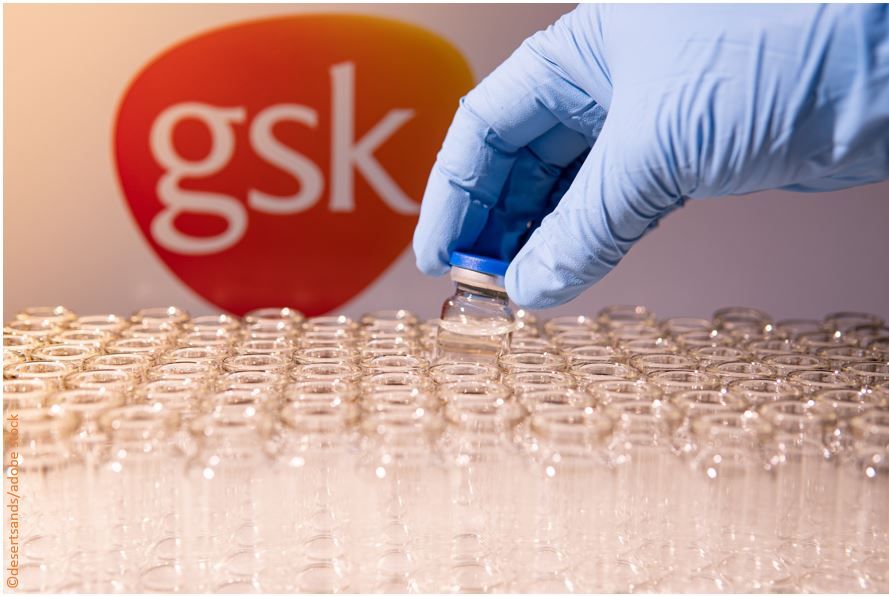- Clinical Technology
- Adult Immunization
- Hepatology
- Pediatric Immunization
- Screening
- Psychiatry
- Allergy
- Women's Health
- Cardiology
- Pediatrics
- Dermatology
- Endocrinology
- Pain Management
- Gastroenterology
- Infectious Disease
- Obesity Medicine
- Rheumatology
- Nephrology
- Neurology
- Pulmonology
Mepolizumab Reduces AER in COPD Leading to Emergency Care by 35%: MATINEE Findings Published in NEJM
Mepolizumab also cut annualized exacerbation rates by 21% across the full study cohort and by 31% in a subgroup of participants with chronic bronchitis only.
Mepolizumab (Nucala; GSK) reduced the annualized rate of moderate to severe exacerbations by 21% in patients with chronic obstructive pulmonary disease (COPD) and evidence of type 2 inflammation, according to final results from the MATINEE trial published in the New England Journal of Medicine.1
The US FDA has set a prescription drug user fee act date of May 7, 2025, for approval of the expanded indication for mepolizumab.
©desertsands/stock.adobe.com

A post-hoc analysis in patients with clinician-assessed chronic bronchitis only showed a greater reduction of 31%, and in an analysis of a secondary endpoint, demonstrated a 35% reduction in exacerbations leading to emergency department visits and/or hospitalizations.1
“Every physician will know the feeling of seeing a patient hospitalized due to an exacerbation that could have possibly been prevented. The MATINEE trial uncovers new possibilities in the treatment landscape for COPD patients with type 2 inflammation, as we strive to target drivers of disease and improve the lives of patients suffering with COPD,” MATINEE lead author Frank Sciurba, MD, associate professor of medicine and medical director of the pulmonary physiology laboratory at the University of Pittsburgh, said a statement.2
The US FDA has set a prescription drug user fee act date of May 7, 2025 for approval of the expanded indication for mepolizumab.
MATINEE Outcomes
The MATINEE trial enrolled 804 participants (mepolizumab, n=403; placebo, n=401) who had experienced COPD exacerbations in the previous year despite optimized inhaled triple therapy. Inclusion required evidence of type 2 inflammation (blood eosinophil count of 300cells/µL or more) and the cohort comprised a broad COPD population including adults with chronic bronchitis, emphysema-only, or both phenotypes, with moderate to very severe disease severity classified according to Global Initiative for Chronic Obstructive Lung Disease (GOLD) stages 2-4.1
Mepolizumab, a monoclonal antibody that targets and binds to interleukin-5 (IL-5), was administered subcutaneously at 100 mg every 4 weeks for 52 to 104 weeks as add-on therapy to treatment with dual long-acting bronchodilators plus inhaled corticosteroid.
In the full study population, mepolizumab reduced the annualized exacerbation rate (AER) from 1.01 events per year in the placebo group to 0.80 in the treatment group (rate ratio [95% CI]: 0.79 [0.66-0.94]; P =.011). Among patients with chronic bronchitis only (n=338), mepolizumab further reduced the AER (0.69 [0.51-0.93]). Participants receiving mepolizumab also experienced a 35% reduction in ED visits and/or hospitalizations (0.65 [0.43, 0.96]), although this secondary endpoint was nominally significant after adjustment for multiplicity (AER mepolizumab = 0.13 vs placebo = 0.20).1
Response rates were high in the mepolizumab group for patient-reported outcomes (PROs) but on standard measures of symptom impact, St. George’s Respiratory Questionnaire, the COPD Assessment Test, and the Evaluating Respiratory Symptoms, the researchers reported no statistically significant difference compared to placebo.1
The incidence of adverse events was similar between treatment arms, with 74% of patients in the mepolizumab group and 77% in the placebo group reporting at least one event. The most frequent adverse events were COPD exacerbation or worsening (12% vs 15%) and COVID-19 infection (12% vs 12%).1
COPD remains the third leading cause of death and affects nearly 400 million people worldwide.3 The elevated eosinophil count characteristic of type 2 inflammation contributes to exacerbations in up to 40% of adults with the obstructive lung disease.4 Even those taking maximal inhaled therapies continue to experience dangerous exacerbations. "These are devastating for patients, known to cause irreversible lung damage, worsening of symptoms and increased mortality," Kaivan Khavandi, GSK senior vice president, global head, respiratory, immunology, and inflammation R&D, said in the statement.2 Survival statistics are grim: 1 in 10 adults hospitalized for COPD dies during the stay, up to 1 in 4 die within a year, and half die within 5 years.5
"Today’s MATINEE results show that mepolizumab can help prevent exacerbations, including those leading to emergency department visits and/or hospitalisation," Khavandi stated. "For decades, we have and will continue to push the boundaries of innovation to prevent disease progression and make a meaningful impact on the lives of people affected by COPD.”
References
1. Sciurba FC, Criner GJ, Christenson SA et al. Mepolizumab to prevent exacerbations of COPD with an eosinophilic phenotype. New Engl J Med. 2025;392:1710-1720. doi:10.1056/NEJMoa2413181
2. Nucala (mepolizumab) delivers clinically meaningful and statistically significant reduction in COPD exacerbations, with positive MATINEE trial results published in New England Journal of Medicine. News release. GSK. April 30, 2025. Accessed May 1, 2025. https://www.gsk.com/en-gb/media/press-releases/nucala-mepolizumab-delivers-clinically-meaningful-and-statistically-significant-reduction-in-copd-exacerbations-with-positive-matinee-trial-results-published-in-nejm/
3. Chen S, et al. The global economic burden of chronic obstructive pulmonary disease for 204 countries and territories in 2020-50: a health-augmented macroeconomic modelling study. Lancet Glob Health. 2023;11(8):e1183-e1193. doi:10.1016/S2214-109X(23)00217-6
4. Rabe KF, et al. Targeting Type 2 Inflammation and Epithelial Alarmins in Chronic Obstructive Pulmonary Disease: A Biologics Outlook. Am J Respir Crit Care Med. 2023;208(4):395-405. doi:10.1164/rccm.202303-0455CI
5. Waeijen-Smit K, et al. Global mortality and readmission rates following COPD exacerbation-related hospitalisation: a meta-analysis of 65 945 individual patients. ERJ Open Res. 2024 Feb 26;10(1):00838-2023. doi: doi.org/10.1183/23120541.00838-2023
